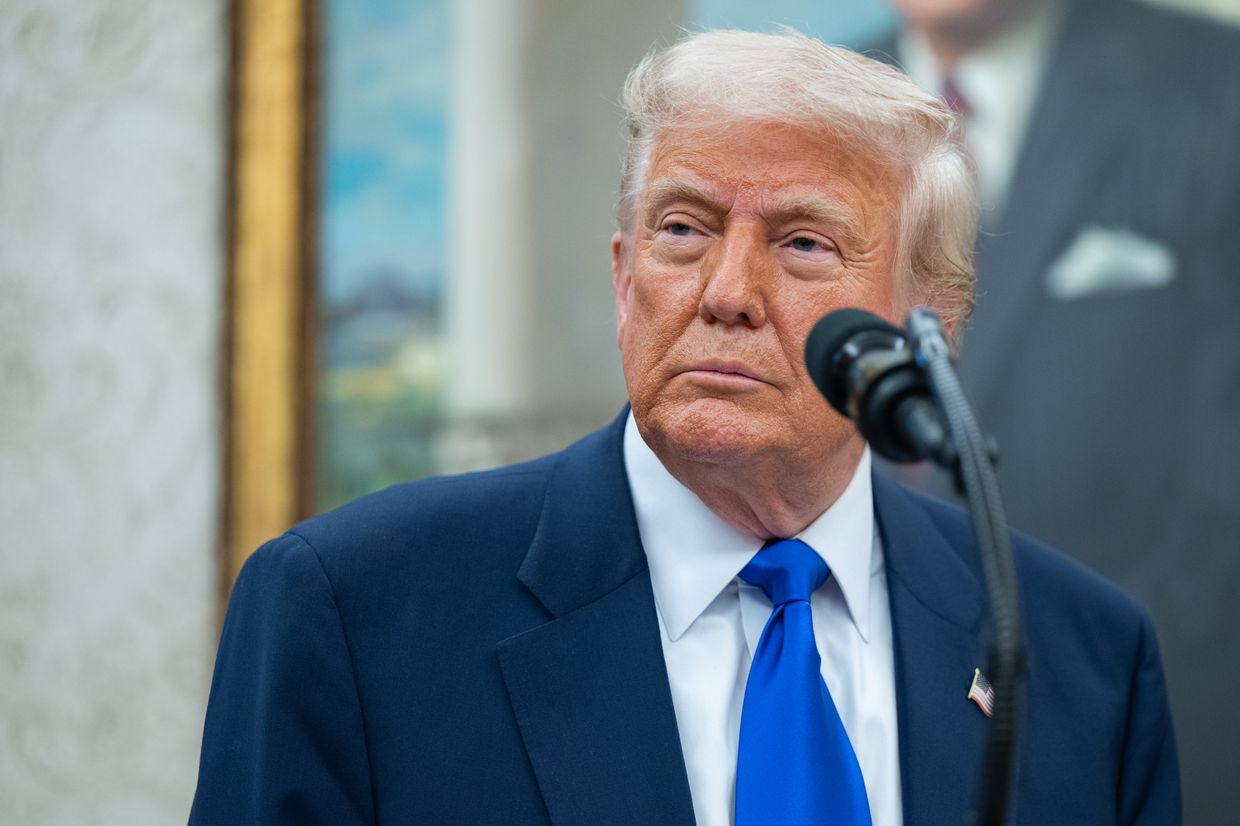In Giant Deals, U.A.E. Got Chips, and Trump Team Got Crypto Riches

© Mark Harris


© Mark Harris


© Doug Mills/The New York Times


© Mark Harris


© Doug Mills/The New York Times
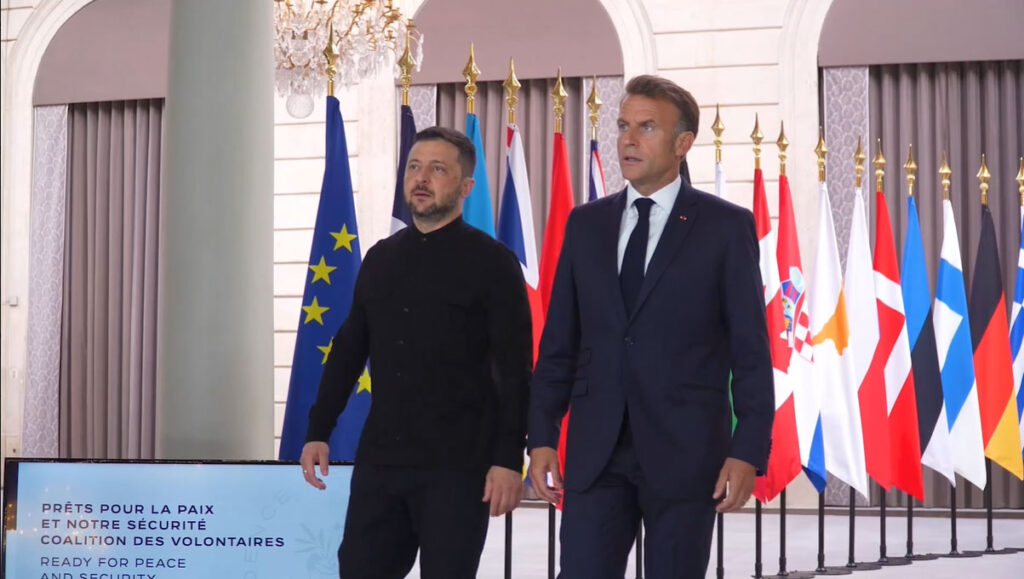

Ukraine’s allies met in Paris to discuss security guarantees, but doubts grew as US commitments remained unclear. Reuters reports the summit brought together 30 leaders seeking to reassure Kyiv while peace talks with Russia look increasingly remote.
On 4 September 2025, Ukrainian President Volodymyr Zelenskyy joined about 30 Western leaders in Paris for talks on security guarantees. The “coalition of the willing” includes European states, Canada, Japan, and Australia. Some leaders attended in person, while others joined by video-link.
The summit aimed to define military support for Ukraine in the event of a truce with Russia. But months of discussion have produced no clarity, as governments argue that European commitments need a US backstop.
Reuters noted that US President Donald Trump has yet to make any explicit pledge. His envoy Steve Witkoff met senior European officials in Paris hours before the meeting, according to diplomats. French President Emmanuel Macron said on 3 September alongside Zelenskyy that coalition leaders would endorse security plans drawn up by their militaries. Macron said Ukraine’s allies have finalized and are ready to politically approve military security guarantees to support Kyiv once a peace deal is reached, according to dpa.
Two European officials confirmed to Reuters the technical plans were finished, though they gave no details.
British and French army chiefs briefed the leaders during the talks. Macron told reporters, “We are ready, us Europeans, to provide security guarantees to Ukraine for when there is a signed peace,” while stressing that sincerity from Russia remains in question.
European officials said the goal was to send a political signal to Trump. Leaders hoped to highlight the absence of progress toward peace talks between Russian President Vladimir Putin and Zelenskyy since Trump hosted Putin in August.
Trump, after hosting Putin, accused him of conspiring with China and North Korea. On 3 September, he denounced the three leaders’ show of unity in Beijing during a commemoration of the end of World War Two.
NATO Secretary General Mark Rutte said on 3 September he expected clarity soon from the coalition on what could be delivered, and that this would pave the way for deeper discussions with Washington.
Western officials said the central element of guarantees would be continued support for Ukraine’s armed forces. Proposals also included deploying an international force in Ukraine or nearby countries to reassure Kyiv, despite Russia’s opposition to foreign troops.
European leaders insisted such a force could only happen with US backing. Trump has spoken in broad terms about supporting Ukraine but has not specified what Washington would contribute, Reuters says. The French presidency said some leaders would call Trump after the summit.


© Eduardo Munoz/Reuters
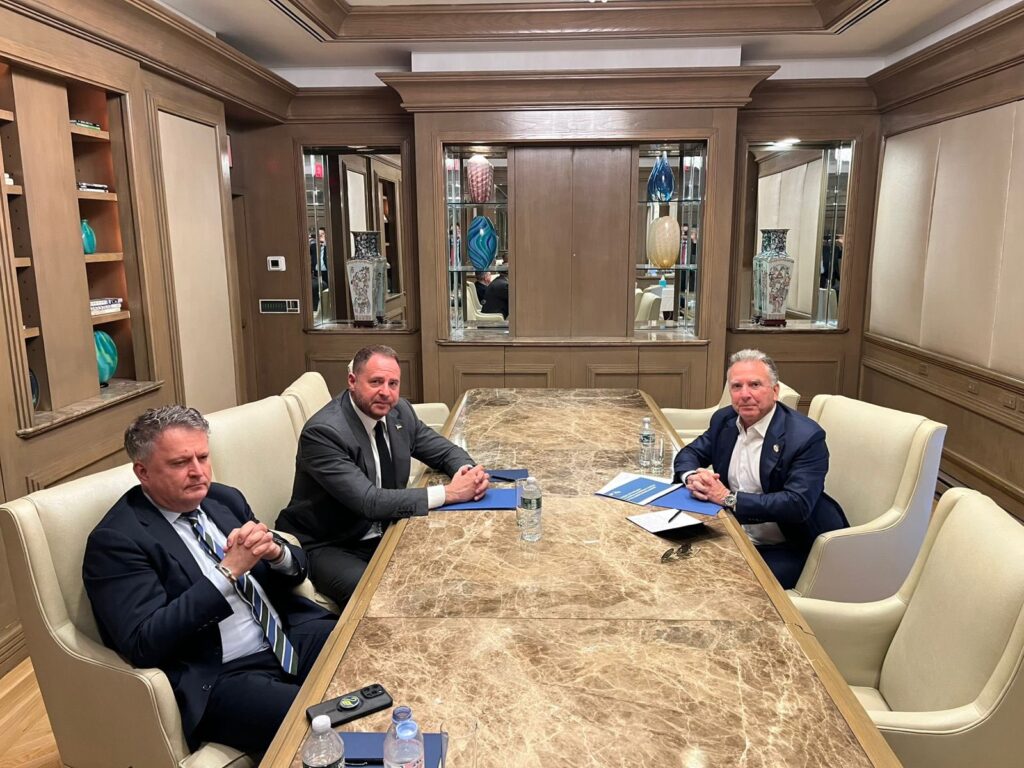

Ukrainian officials held negotiations with US President’s special representative Steve Witkoff during a visit to the United States, the President’s Office Andriy Yermak said.
Yermak said he spoke with Witkoff in New York alongside First Deputy Foreign Minister Serhiy Kyslytsia. “The key priority is to push forward real diplomacy and ensure the implementation of all the agreements reached at the Washington summit. We are coordinating our efforts,” he said.
The Head of the President’s Office briefed Trump’s special representative on ongoing Russian war crimes against Ukraine, including the latest massive attack on Kyiv that killed 23 people. He emphasized that Russia is taking no steps that could lead to ending the war and is instead prolonging it.
“Ukraine welcomes all peace initiatives put forward by the United States. But unfortunately, each of them is being stalled by Russia. We are open to direct negotiations at the leaders’ level and ready to discuss the broadest spectrum of issues. We believe that global pressure is needed to ensure Russia is genuinely ready to move toward peace and, in particular, to hold critically important leaders’ meetings for that purpose,” Yermak said.
He added that he invited Witkoff to visit Ukraine in the near future.
Earlier developments show mixed signals on potential talks. On 22 August, Russian Foreign Minister Sergey Lavrov stated that Vladimir Putin would meet with Volodymyr Zelenskyy only after preparing a “summit program,” with no such plans currently existing.
On 29 August, the Kremlin repeated that it does not object to a meeting as such, but only after preparation “at the expert level.”
Media reports indicate that US President Donald Trump intends to leave Russia and Ukraine to organize a meeting between their leaders, thereby stepping aside from the negotiations for now.
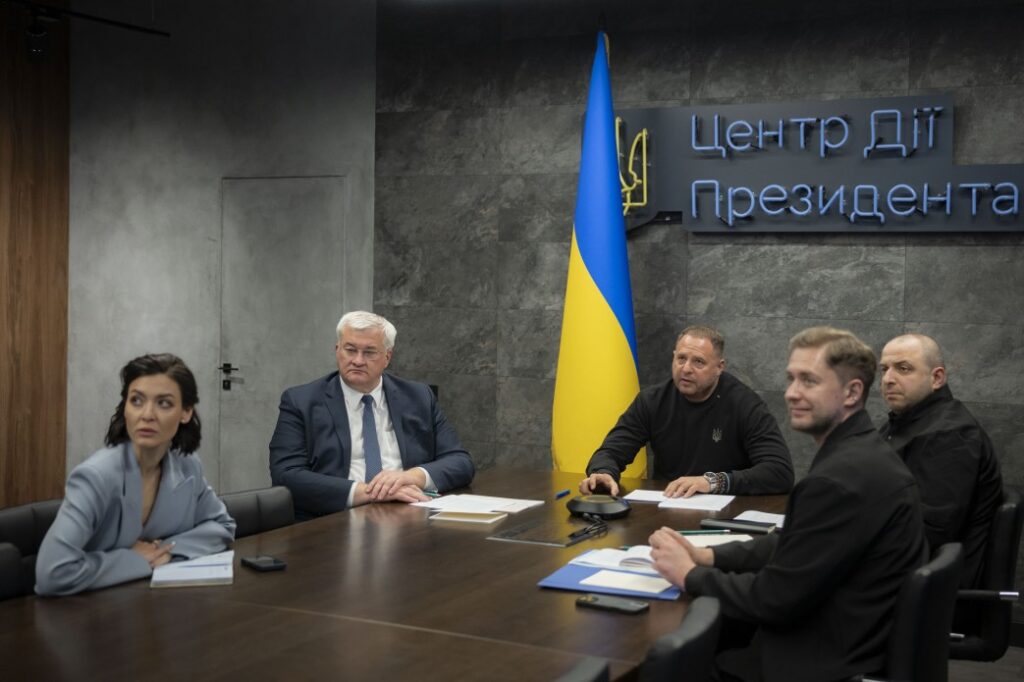

Head of the Presidential Office Andriy Yermak and Deputy Foreign Minister Serhii Kyslytsia will join the Ukrainian delegation meeting with US President’s special envoy Steve Witkoff in New York this week, an informed government source told Suspilne.
National Security and Defense Council Secretary Rustem Umerov reportedly will also participate in the meeting.
According to sources, the meeting’s agenda will continue agreements reached during the Ukrainian delegation’s visit to Washington and negotiations with US President’s special envoy Keith Kellogg in Kyiv. The discussions will separately address negative signals coming from the Russian side regarding a possible leaders’ meeting and the negotiation process overall.
US President’s special envoy Steve Witkoff previously announced he would meet with Ukrainian representatives in New York this week.
“I’m meeting with the Ukrainians this week. So I’ll meet with them this week in New York, and that’s an important signal that we talk to the Russians every day,” Witkoff said on Fox News’ “Special Report” program.
On 25 August, Ukrainian President Volodymyr Zelenskyy announced a meeting between Ukrainian and American teams at the end of the current week. The meeting will discuss possibilities for future negotiations between Ukraine and Russia.
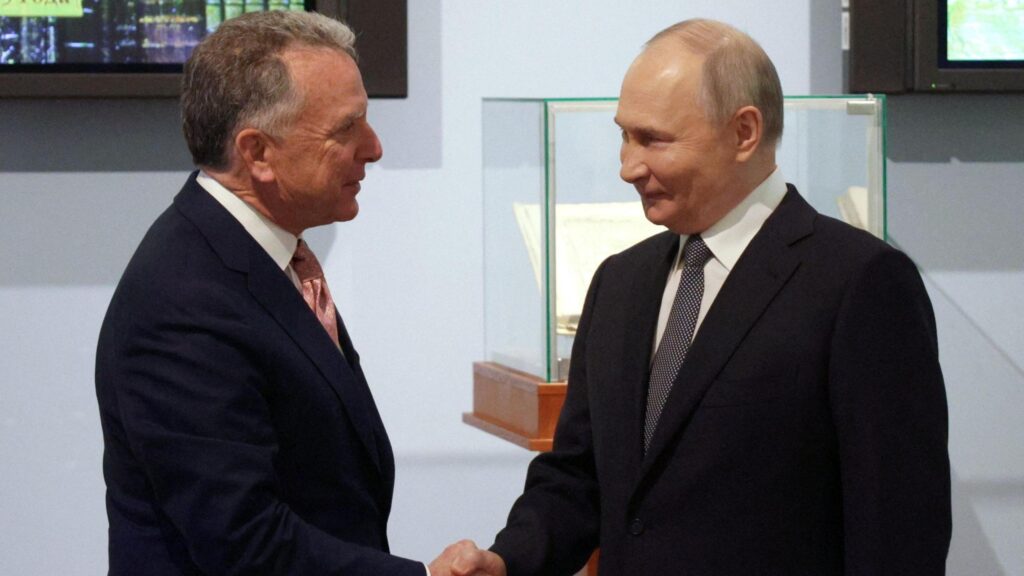

Russia has submitted a peace proposal regarding Donetsk Oblast as part of efforts to end its war against Ukraine, according to Steve Witkoff, US President Donald Trump’s Special Envoy for the Middle East.
Speaking in a Fox News interview, Witkoff revealed the existence of the Russian proposal while defending Trump’s diplomatic efforts.
“The Russians have put a peace proposal on the table. It involves Donetsk. It may not be something that the Ukrainians can take,” Witkoff said.
The envoy did not specify the proposal’s details or submission date, but emphasized Trump’s role in advancing negotiations. “No one has done more than this president in narrowing the issues between these two countries and bringing the sides close to a deal,” Witkoff said.
When asked about responsibility for prolonging the war, Witkoff described both parties as challenging. “We’ve got two tough sides here. You heard the President say that he is disappointed in Russia in some respects, and he is also disappointed in the Ukrainians in some respects,” he said.
The disclosure comes after Trump announced reaching an agreement with Russian leader Vladimir Putin on territory exchange following their Alaska talks. Trump said that “President Zelenskyy has to agree” to the arrangement.
According to Bloomberg reports, Putin continues demanding Ukrainian troop withdrawal from Donetsk and Luhansk oblasts entirely, while offering to freeze the front lines in Zaporizhzhia and Kherson oblasts. Ukrainian President Volodymyr Zelenskyy has rejected these demands.
Reuters previously outlined Russia’s war-ending conditions that Putin presented to Trump during their Alaska meeting on 17 August. Trump has warned of launching an “economic war” against Russia if it avoids negotiations.
Witkoff announced plans to meet with a Ukrainian delegation in New York this week as diplomatic efforts continue.
Trump reports indicate Putin wants immediate discussions on ending the war rather than merely pausing hostilities, with Trump believing this approach would be optimal.
The US continues supplying weapons to NATO allies currently providing military assistance to Ukraine, according to Trump’s statements.
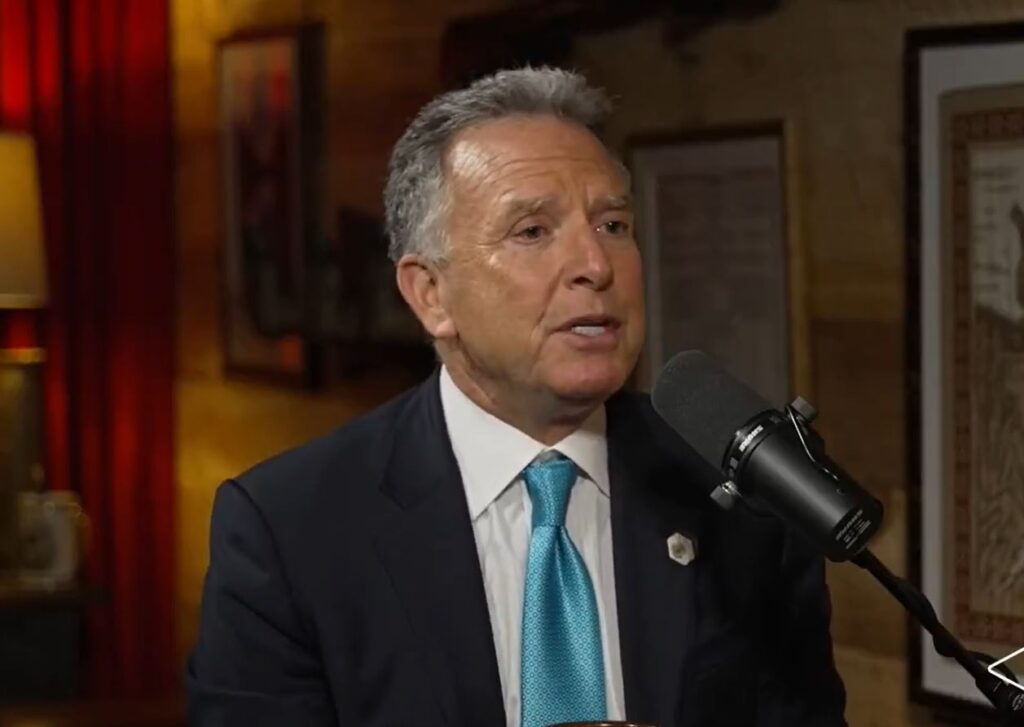

US Middle East envoy Steve Witkoff will meet with a Ukrainian delegation in New York this week, he announced in a Fox News interview.
Witkoff said that the upcoming meeting with the Ukrainian side “is a big signal.” The envoy revealed he communicates daily with the Russian side and expressed hope that a bilateral meeting between Ukrainian President Volodymyr Zelenskyy and Russian President Vladimir Putin could take place soon.
Regarding the Kremlin leader, Witkoff said that during his meeting with US President Donald Trump in Alaska, Putin told him he “wants peace.” The envoy expressed hope that Moscow “will stick to that.”
“A peace agreement regarding the settlement of the Russian-Ukrainian war is already on the table,” Witkoff said, according to Fox News.
The announcement comes after Witkoff previously met with Ukraine’s security advisors. President Zelenskyy described that conversation as lengthy and highly detailed.
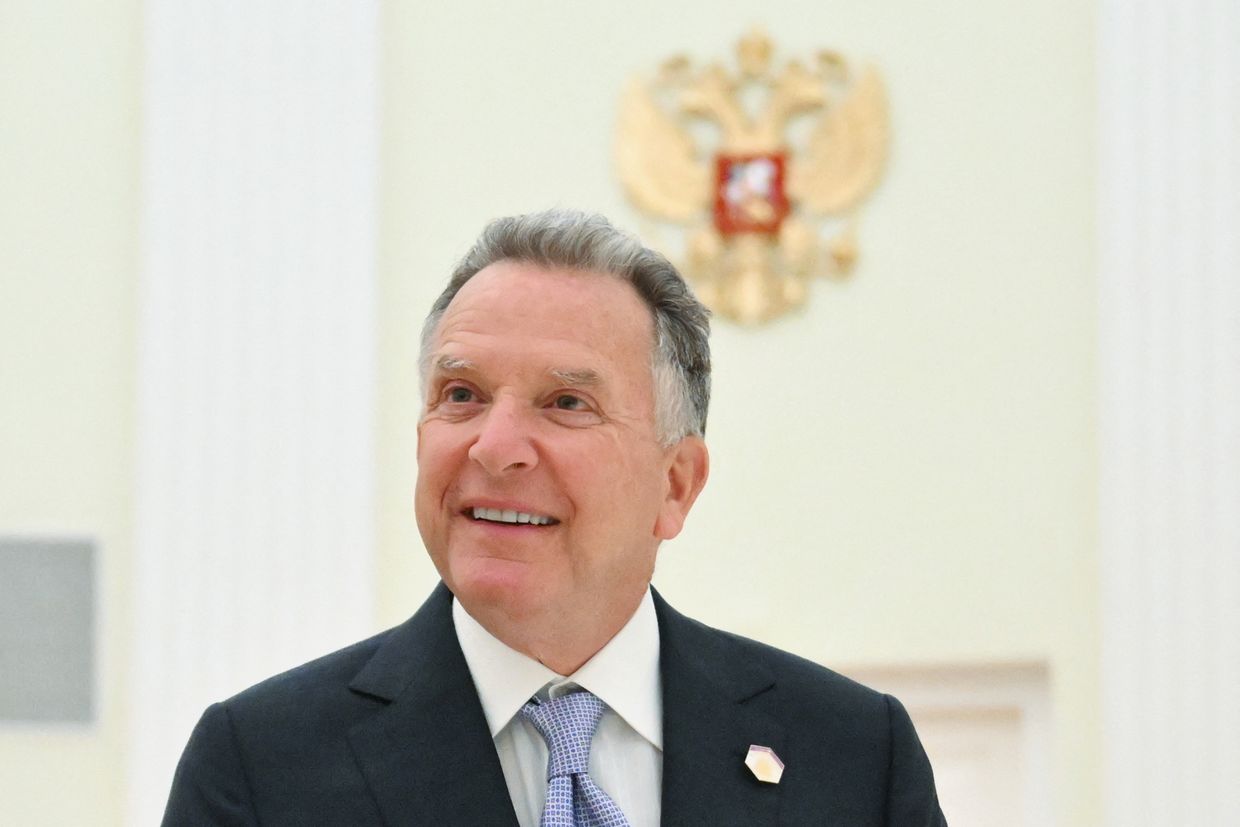

U.S. President Donald Trump's Special Envoy Steve Witkoff is pushing to lift U.S. energy sanctions on Russia, Politico reported on July 4, citing two people familiar with the matter.
The move is part of a broader debate within Trump's administration over how to engage with Moscow amid the ongoing war in Ukraine.
While Witkoff is reportedly advocating for the easing of energy sanctions, others in the administration disagree. Interior Secretary Doug Burgum favors reducing U.S. reliance on Russian imports rather than expanding trade, according to Politico.
Despite pledging during his campaign to end the war in Ukraine in "24 hours," Trump has made little progress on securing a ceasefire. After nearly seven months of his presidency, and several peace talks between Russia, Ukraine, and the United States, no ceasefire agreement has been reached.
Moscow continues intensifying its attacks against Ukrainian cities. Russia launched one of the largest aerial attacks on Ukraine on July 4, hours after Russian President Vladimir Putin had a phone conversation with Trump.
When journalists asked if he had made any progress with Putin on the call, Trump responded: "No, I didn't make any progress with him today at all."
Europe's energy sector is a central issue in the debate. According to Politico, Moscow is in early talks with Washington about potentially restarting the Nord Stream pipeline project, with backing from U.S. investors. The development has sparked concern in Brussels.
One senior EU official reportedly warned that Trump and Putin appear to be aiming to "divide the European energy market and create (separate) spheres of influence."
Witkoff, a real estate developer-turned-envoy, has raised eyebrows in Washington and abroad over his handling of high-level talks with Russia. As reported by NBC News in May, he has relied on Kremlin-provided translators during multiple meetings with Putin, including a visit to Moscow on April 26, just a day after a Russian missile attack killed 12 people in Kyiv.
Trump's administration has so far refrained from imposing new sanctions against Russia, even as Putin continues to reject calls for a ceasefire.
 The Kyiv IndependentThe Kyiv Independent news desk
The Kyiv IndependentThe Kyiv Independent news desk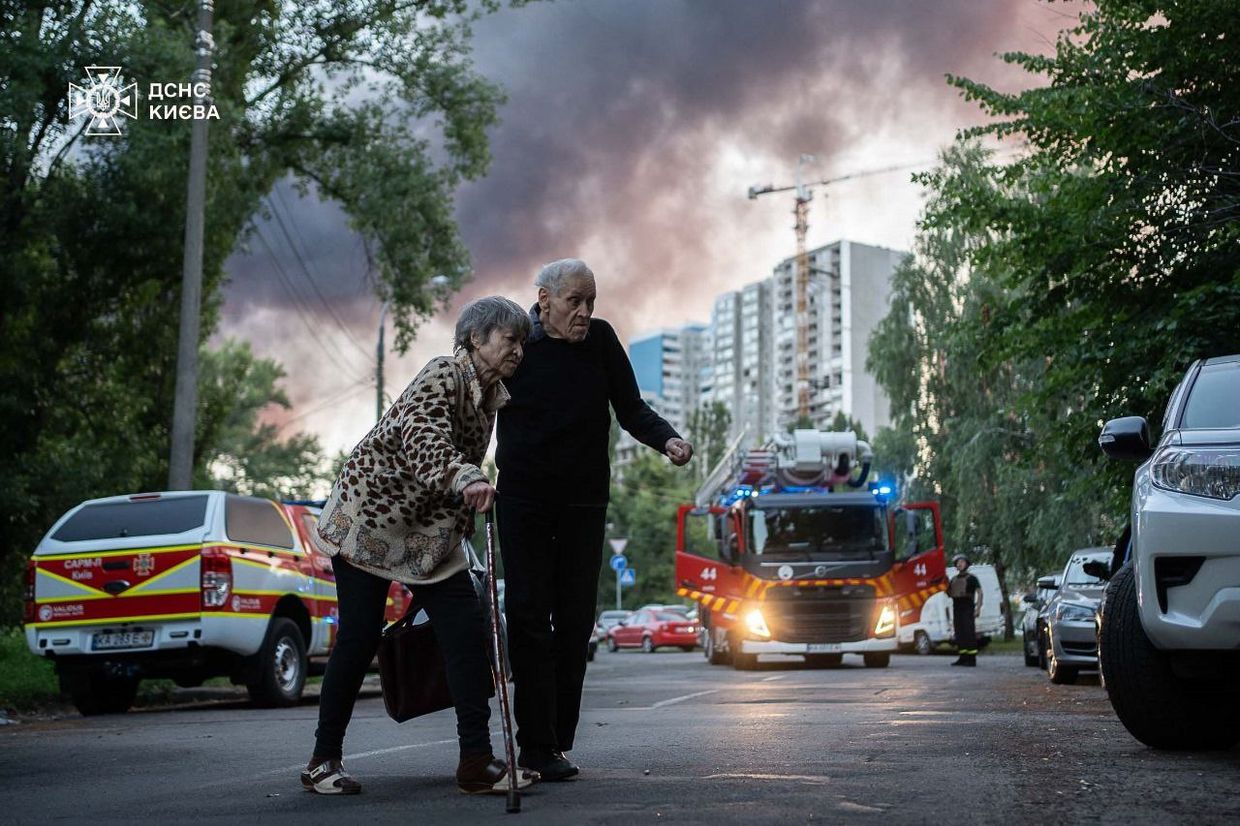
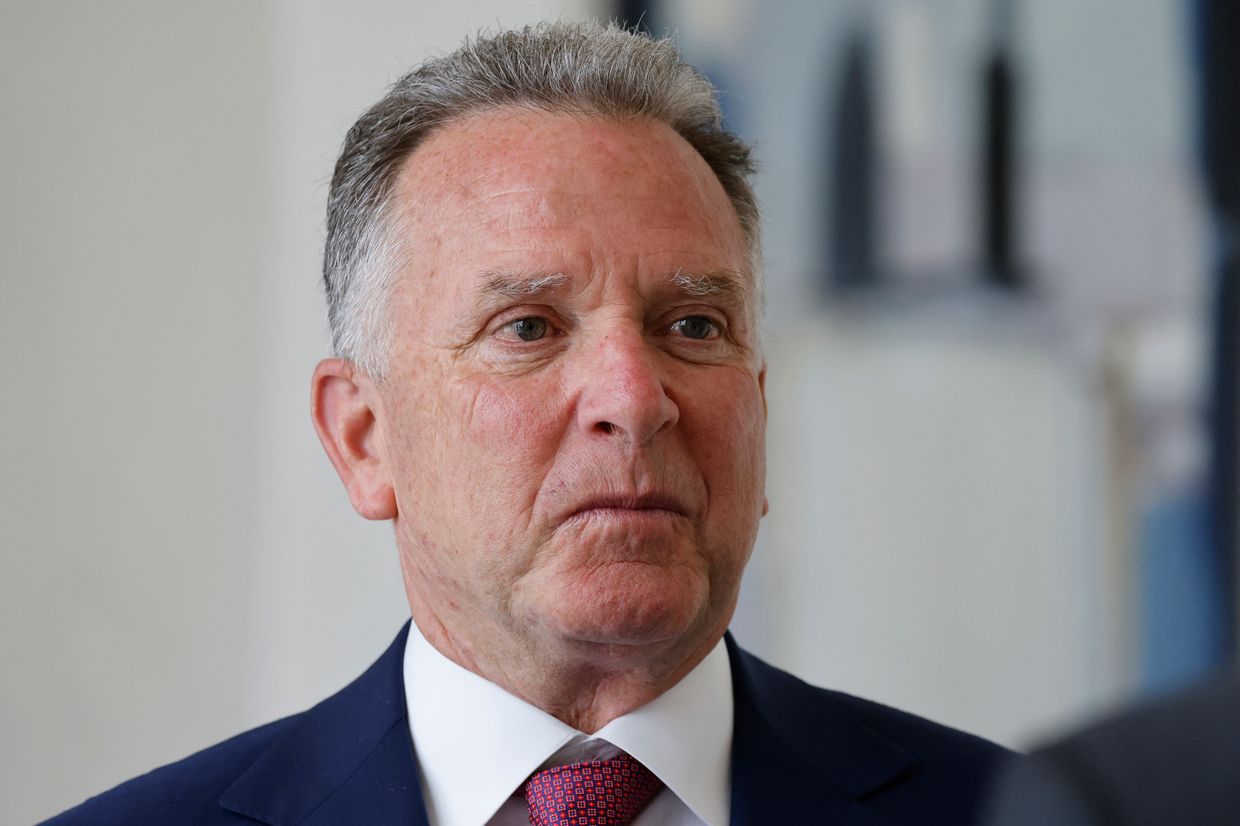

U.S. Special Envoy to the Middle East Steve Witkoff condemned on June 24 the leak of an intelligence assessment that undercuts U.S. President Donald Trump's claims of having "obliterated" Iran's nuclear program.
His remarks follow a leaked U.S. Defense Intelligence Agency (DIA) assessment, reported by CNN, which found that strikes on three major Iranian nuclear sites, Fordow, Natanz, and Isfahan, did not destroy the core of Tehran's nuclear program. Instead, the intelligence suggests the attacks likely delayed Iran's progress by "a few months."
"It goes without saying that leaking that type of information, whatever the information, whatever side it comes out on, is outrageous. It's treasonous," Witkoff said during an appearance on Fox News. "It ought to be investigated, and whoever is responsible should be held accountable."
Witkoff, who served as Assistant to the U.S. president and led peace mission efforts during the recent conflict between Israel and Iran, defended Trump's portrayal of the U.S.-led strikes as a decisive success.
"The objective was to eliminate enrichment in Iran… and he achieved that objective," Witkoff said, adding that he personally reviewed damage assessments and saw "no doubt" that key nuclear infrastructure was destroyed.
The report leaked in media contradicts public statements from Trump and Defense Secretary Pete Hegseth, who had described the operation as delivering "total obliteration." Trump, for his part, stood by the claim on June 24. "Those targets were obliterated," he said. "That place is demolished."
According to the DIA assessment, though the strikes damaged above-ground infrastructure, most of the centrifuges and the enriched uranium stockpile reportedly remain intact. The assessment also noted that underground sections of the sites, where Iran's most sensitive work is done, were largely unaffected. Two officials told CNN that Iran likely retains operational nuclear facilities that were not targeted.
Witkoff dismissed the report as "preposterous," insisting that the Isfahan conversion facility, critical to Iran's ability to weaponize enriched uranium, was "completely destroyed" by a 30,000-pound bunker buster bomb.
"Without conversion, you can't begin or end enrichment," he said. "They cannot weaponize, even if they've enriched to 90%."
Witkoff also claimed successful targeting of Fordow and Natanz, saying the U.S. dropped more than a dozen bunker busters on the sites that made the facilities inoperable.
The White House acknowledged the assessment’s existence but strongly dismissed it. "This alleged assessment is flat-out wrong and was classified as ‘top secret’ but was still leaked to CNN by an anonymous, low-level loser in the intelligence community," press secretary Karoline Leavitt said.
"The leaking of this alleged assessment is a clear attempt to demean President Trump, and discredit the brave fighter pilots who conducted a perfectly executed mission to obliterate Iran’s nuclear program. Everyone knows what happens when you drop fourteen 30,000 pound bombs perfectly on their targets: total obliteration."
Trump, for his part, stood by his assessment of the mission's success. "I think it’s been completely demolished," he said on June 24. "Those pilots hit their targets. Those targets were obliterated, and the pilots should be given credit.” Asked if Iran could rebuild, Trump responded: "That place is under rock. That place is demolished."
While both Trump and Hegseth praised the strikes as decisive, others expressed caution. Chairman of the Joint Chiefs of Staff Dan Caine said it was "way too early" to determine whether Iran retained nuclear capabilities.
 The Kyiv IndependentKateryna Hodunova
The Kyiv IndependentKateryna Hodunova